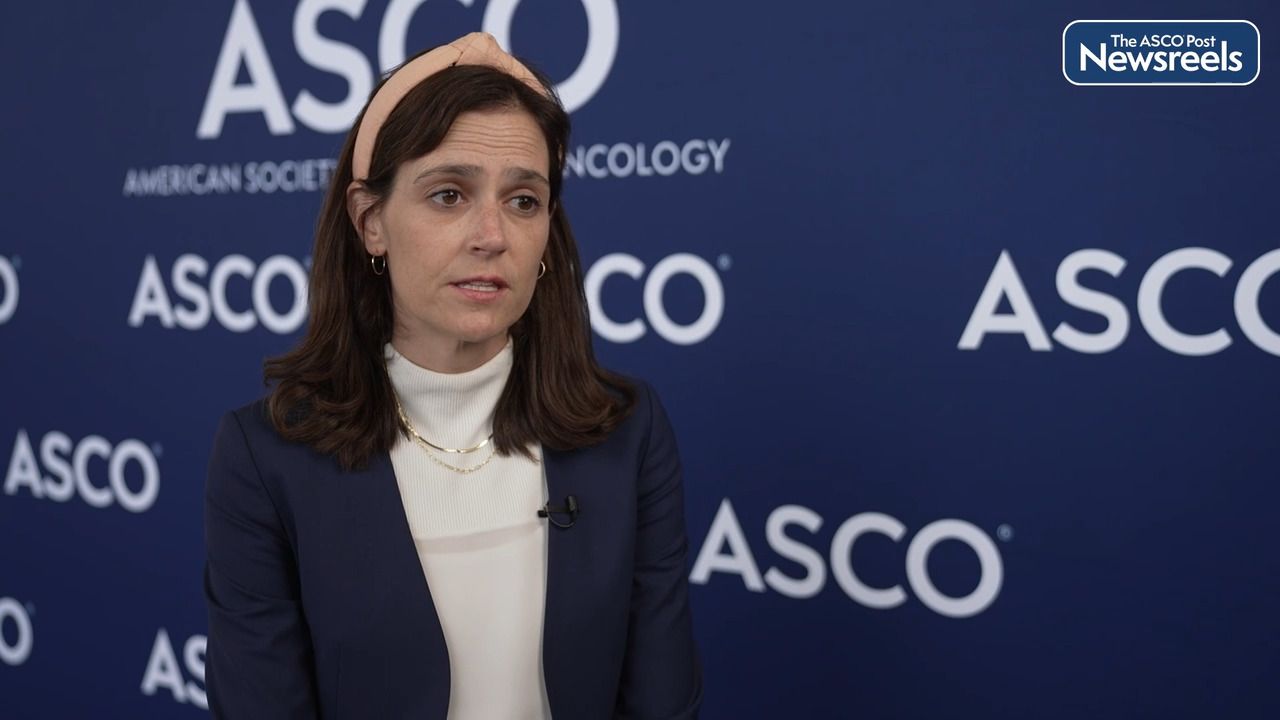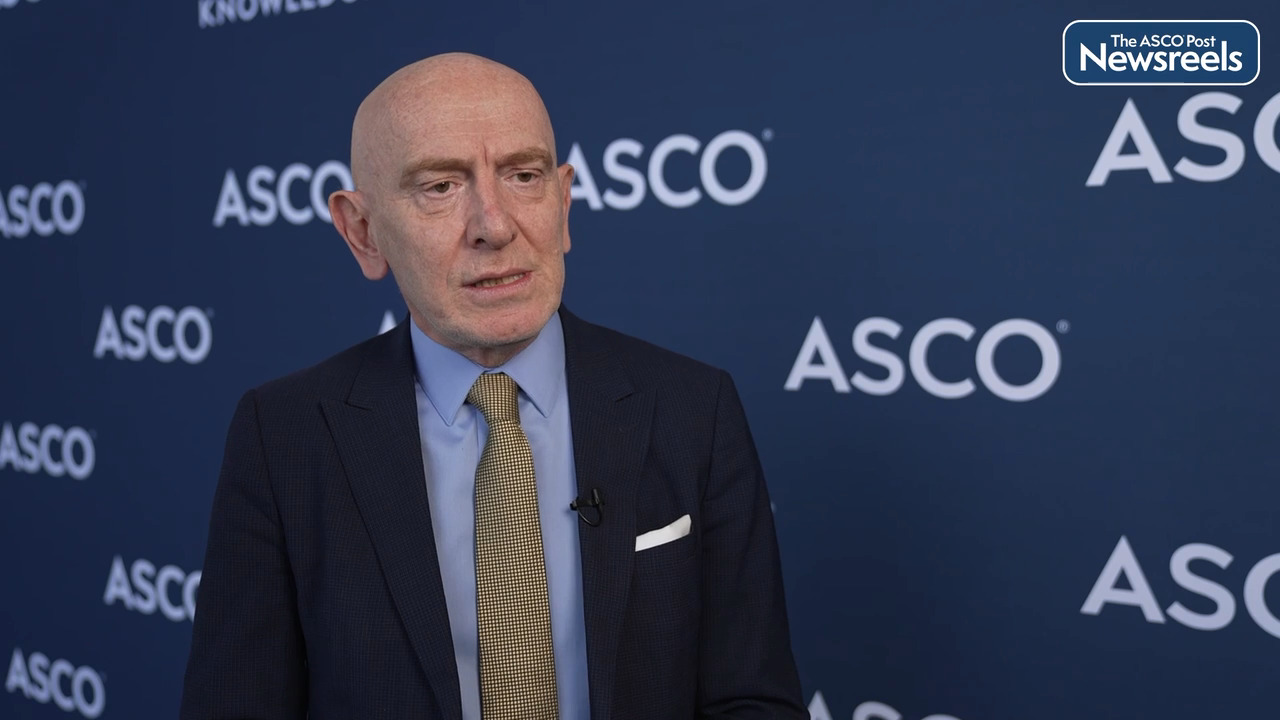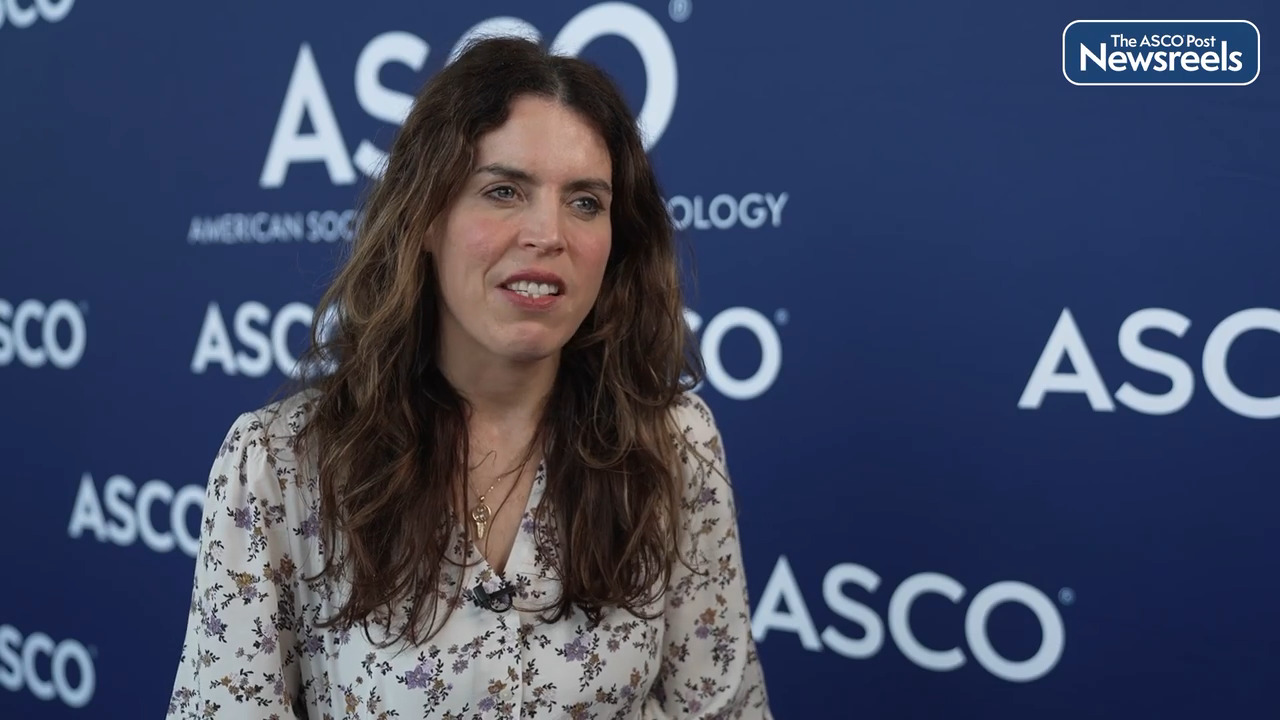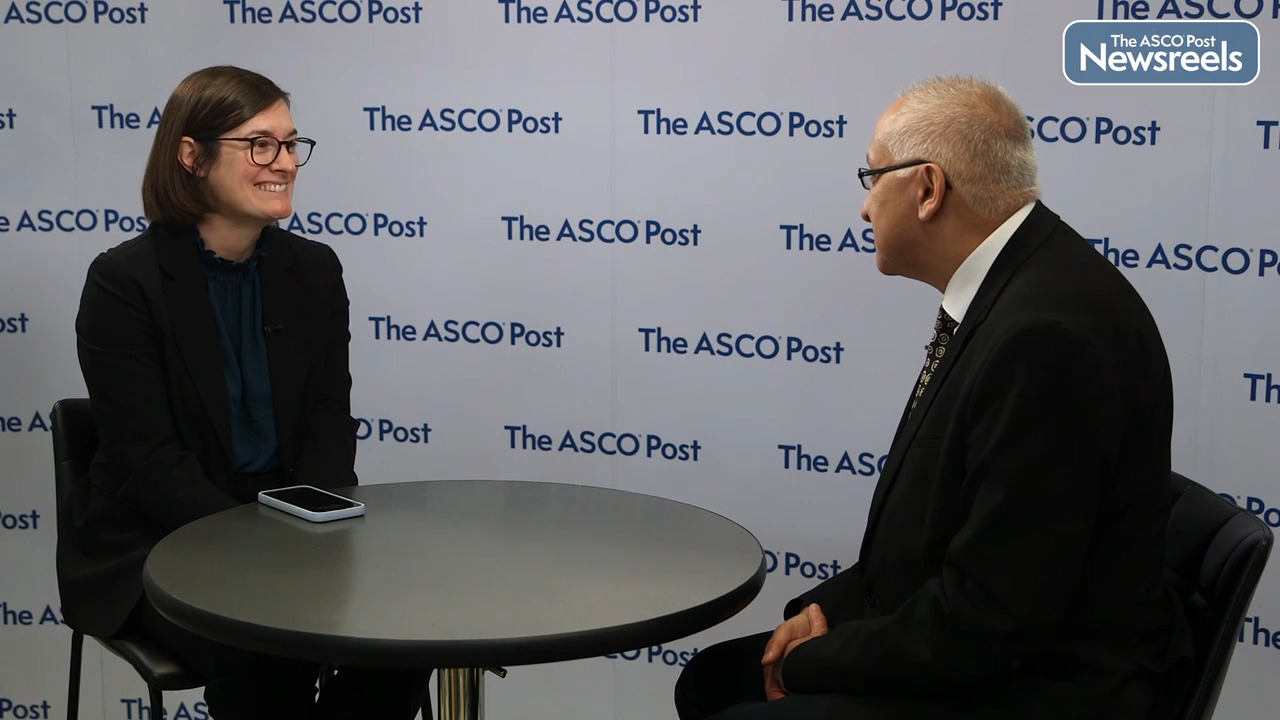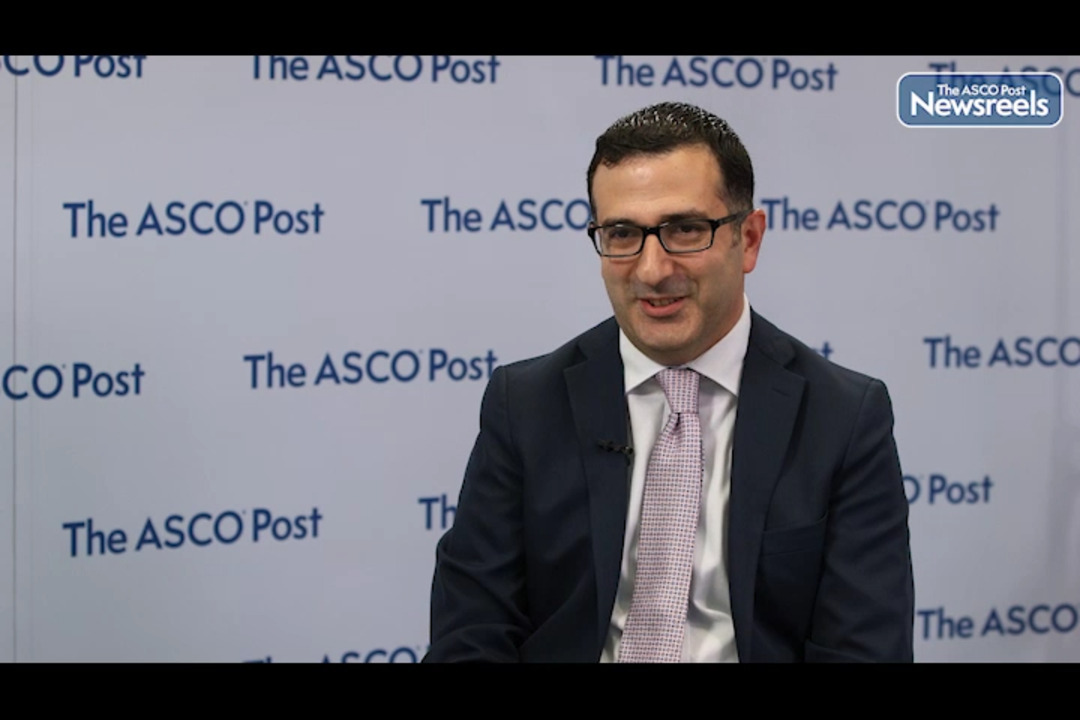Shilpa Gupta, MD, on Urothelial Carcinoma: Long-Term Outcome of Enfortumab Vedotin Plus Pembrolizumab
2023 ASCO Annual Meeting
Shilpa Gupta, MD, of Cleveland Clinic, discusses the results from the EV-103 study and the unmet need for effective first-line therapies in cisplatin-ineligible patients with locally advanced or metastatic urothelial carcinoma. After nearly 4 years of follow-up, the trial findings showed that enfortumab vedotin-ejfv plus pembrolizumab continues to demonstrate promising survival trends with rapid and durable responses in this population (Abstract 4505).
Transcript
Disclaimer: This video transcript has not been proofread or edited and may contain errors.
Shilpa Gupta, MD:
We are reporting the four-year follow-up of EV103 dose escalation in cohort A. This was the study in locally advanced and metastatic urothelial cancer patients who are ineligible to receive cisplatin and received a combination of enfortumab vedotin and pembrolizumab. Enfortumab vedotin is an ADC, which is already approved in the refractory setting in metastatic urothelial cancer. Previous data has led to the X-rated approval of this combination in this setting. This is the long-term data that is being reported, and we saw that the response rates by BICR was 73.3%. Median overall survival was 26 months at a median follow-up of 47 months. Median progression-free survival was 12.7 months, and the tail of the curve is still holding strong, and this is really important results for these patient populations where historically, the median overall survival used to be six to nine months.
There were no new signals of toxicity. The key toxicities that we saw with the combination were rash, peripheral neuropathy, fatigue, and these are all manageable. If dose reductions and dose discontinuations are done appropriately, these toxicities do tend to resolve. For example, the rash and the hyperglycemia tend to occur early and resolve very early if dose reductions and dose discontinuations or treatment breaks are given. Peripheral neuropathy takes some time to manifest, around 2.7 months at the median, and can resolve by seven months with dose reductions. We really need to be cautious of these toxicities and manage the patients appropriately, but this is really very important data for this patient population, and the ongoing phase three study of EV302, which is looking at this combination versus standard of care gemcitabine cisplatin, or gemcitabine carboplatin will further establish its efficacy across the board.
The ASCO Post Staff
Jennifer L. Crombie, MD, of Dana-Farber Cancer Institute, discusses the historically poor outcomes for patients with relapsed or refractory diffuse large B-cell lymphoma (DLBCL). Her study examined real-world data on the use of novel therapies in this population and found that outcomes with second- and third-line regimens of polatuzumab vedotin-piiq plus bendamustine and rituximab and tafasitamab plus lenalidomide remain suboptimal, with worse outcomes particularly after chimeric antigen receptor T-cell therapy (Abstract 7552).
The ASCO Post Staff
Muhit Özcan, MD, of Turkey’s Ankara University School of Medicine, discusses phase II findings from the waveLINE-004 study. It showed that the antibody-drug conjugate zilovertamab vedotin had clinically meaningful antitumor activity in patients with relapsed or refractory diffuse large B-cell lymphoma (DLBCL) who experienced disease progression after, or have been ineligible for, autologous stem cell transplantation and/or chimeric antigen receptor T-cell therapy (Abstract 7531).
The ASCO Post Staff
Claire Roddie, PhD, MBChB, of University College London, discusses results of the FELIX study, which showed that the second-generation chimeric antigen receptor (CAR) T-cell therapy obecabtagene autoleucel is safe for adults with relapsed or refractory B-cell acute lymphoblastic leukemia, even those with a high burden of disease. This agent yielded high rates of complete response and ongoing CAR T-cell persistence in most patients whose disease responded (Abstract 7000).
The ASCO Post Staff
Bobbie J. Rimel, MD, of Cedars-Sinai Medical Center, and Mansoor R. Mirza, MD, of Denmark’s Rigshospitalet and Copenhagen University Hospital, discuss new findings on dostarlimab-gxly plus carboplatin/paclitaxel, which improved progression-free survival while maintaining health-related quality of life, further supporting its use as a standard of care in primary advanced or recurrent endometrial cancer (Abstract 5504).
The ASCO Post Staff
Rami Manochakian, MD, of Mayo Clinic Florida, offers his perspective on the new phase III findings on osimertinib, a third-generation, central nervous system EGFR tyrosine kinase inhibitor, which demonstrated an unprecedented overall survival benefit for patients with EGFR-mutated, stage IB–IIIA non–small cell lung cancer (NSCLC) after complete tumor resection, with or without adjuvant chemotherapy (Abstract LBA3).
